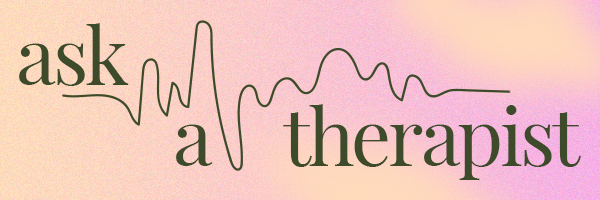Ever wondered what you'd say to a therapist, given the chance? We asked Dr Sheri Jacobson, a retired psychotherapist with over 17 years' clinical experience and the co-founder of Harley Therapy Platform (UK Online Therapists), for advice on the things we worry about in private.
Have a question for a therapist? Submit yours for Sheri.
Question:
I’m not sure why but I gained weight during the pandemic – probably because of the lack of moving around and some emotional eating. There hasn’t been a major change in my life. This shouldn’t be a problem because I believe we should accept bodies of all sizes and I know that healthy doesn’t automatically equal slim. But I’m struggling to accept my new size. I feel insecure, my clothes all look different and I feel like the only one of my friends who’s had this happen. There’s a part of me that thinks I should work to lose weight, even though I’m now eating and exercising the exact way I did before the weight gain and nothing has changed. Trying to lose more weight would mean behaviours I’m not sure I should encourage. What should I do?
AdvertisementADVERTISEMENT
Charlie, 28
Answer:
There are two main reasons why we feel bad when our bodies change. One is about how we feel in relation to others and the other is how we feel in ourselves.
As humans we form ideals about our body based on innate views about beauty, based on symmetry and 'healthy' features that suggest you’d be more reproductively viable, and on socially constructed views of beauty. And whether we want to or not, we will compare ourselves to others, particularly the 'in' group that is seen as the ideal. That's often the basis on which we live our lives.
While the accepted norms are changing and shifting, slimness is still a residual norm and naturally we will still compare ourselves against that standard.
But if we're looking at the individual reaction instead of comparing to others, whenever there's a change within us at any age (like wrinkles or spots or reduced mobility), that's an adjustment that could often be experienced as a loss. As humans we don't like change full stop. We like things to be the same because it’s safe, it's certain and any alterations are probably going to cause some shift one way or another. This is especially true if the bodily changes have impacted your ability to function as you once did.
This all ties in with the idea of self-acceptance. If you look at yourself in this particular moment, everything about your appearance and your personality right now is technically a starting point. We can still make changes beyond that and if you are unhappy with who you are it doesn't mean you've got to live with it, but the important thing is to accept the basis of where we start from. If you don’t like your skin ageing, you can still be grateful to have the protective barrier. In this case you may not like that you’ve gained some weight but you can be grateful that you can still move as much as you used to. We can learn to accept these changes by trying to find the bits of ourselves that we are grateful for and embracing what we do have even if we don’t love it.
AdvertisementADVERTISEMENT
Saying it this way sounds easy but self-acceptance takes constant, constant work. So it's good to work on it through activities that are regular and repetitive like journalling, therapy, reading self-help books or associating with friends who are working on a similar journey. The more that we attend to it, the more it becomes habitual. Though it’s worth saying that it will of course be a lot harder for some people if you’ve had negative experiences around your weight such as receiving negative messaging from early caregivers or important peers.
The crucial thing to remember is that this is such a common experience. Almost everyone has at one point been concerned with their appearance and some people more than others! That could be because of messaging from early childhood, the messages that have been ingrained through society, spending too much time on social media or maybe having a group of friends for whom that matters. So it's very, very common to be preoccupied with how we look and to want to try and change to be different. It's also very hard to accept the way we are right now so don’t beat yourself up for struggling. But in my opinion that’s probably the best thing that we can do. From that base we can make changes and it's my belief that they should be guided by health and wellbeing, not exclusively by how we will appear to others.
The focus should be on whether we are feeding ourselves well, getting enough rest, moving regularly in a way we enjoy and, crucially, how we feel, not how you look and how others perceive you. I'm not saying that that's not important – most of us are preoccupied with it at one point or another – but the driver should be about health and wellbeing. And ironically, I have seen with clients that the moment they get that and they live life by that, their weight adjusts, whether they were initially hoping to gain or to lose.
So work towards gratitude and acceptance for what you currently have and top that off with some self-compassion if you go out of your perceived boundaries for a little bit. Acceptance is being understanding, while compassion is that kind, friendly voice that says: It's okay. Maybe it's not ideal but right now I'm alright. And you deserve to feel that.
